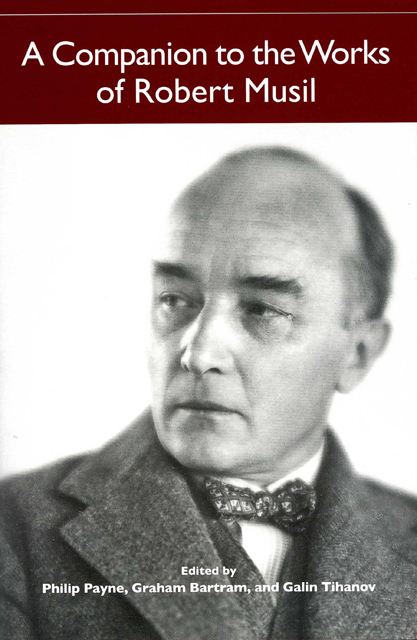Book contents
- Frontmatter
- Dedication
- Contents
- Preface
- Acknowledgments
- List of Abbreviations
- Musil's Principal Works
- Miscellaneous Frontmatter
- Introduction The Symbiosis of Robert Musil's Life and Works
- Musil's Life: Experiences, Reflections, Emotions of an Intellectual
- Literary Works before Der Mann ohne Eigenschaften
- Perspectives on Der Mann ohne Eigenschaften
- Select Bibliography
- Robert Musil's Life: A Chronology
- Notes on the Contributors
- Index
8 - The Genesis of Der Mann ohne Eigenschaften
Published online by Cambridge University Press: 15 March 2023
- Frontmatter
- Dedication
- Contents
- Preface
- Acknowledgments
- List of Abbreviations
- Musil's Principal Works
- Miscellaneous Frontmatter
- Introduction The Symbiosis of Robert Musil's Life and Works
- Musil's Life: Experiences, Reflections, Emotions of an Intellectual
- Literary Works before Der Mann ohne Eigenschaften
- Perspectives on Der Mann ohne Eigenschaften
- Select Bibliography
- Robert Musil's Life: A Chronology
- Notes on the Contributors
- Index
Summary
A Lifelong Process: The Opus of the Imagination
Children in the German-Speaking countries learn that Goethe worked on his play Faust for the whole of his adult life. Life-long writing on one and the same book has become a paradigm of modern European novel writing, even when the authors in fact publish more than the one novel. It is true that Goethe did indeed work on Faust from his early years until almost the end of his life, but this writing was neither constant nor exclusive. Modernist novel writing as a life-long process is to a large extent a function of the given work's involvement with autobiography and its preoccupation with society at large; the modern novelist always writes about himself and about his times. From early in their life, novelists encompass their magnum opus as an opus of the imagination within themselves. The imagined opus is one that will never, as a whole, quite see the light of day. It appears in selected segments according to the opportunities and demands of talent, circumstance, necessity, and the will to complete the work. In the case of Kafka, for example, the imaginary component is clearly written into the work. The Trial — the German word for “trial” is “Process” — never became a book but remained a life-long “process.”
We should not consider Kafka's work a special case among modernist novels — it is an example within the norm. The novel of classical modernism is always at most a partial realization of its potential. Elias Canetti reports that, when he thought of becoming a writer, he intended to write eight novels. Of the imagined eight, only one appeared, Die Blendung (translated as Auto da fé, 1935). Robert Musil began concerted work on his great novel project Der Mann ohne Eigenschaften in the year 1918; what he actually had in mind was to write fewer than twenty novels. These became, over the period 1923 to 1927, ten sections of a single novel of fantasy. Musil, in the 161 chapters and more than one thousand printed pages of the part of the project published in his lifetime, realized only a fraction of his imagined opus.
- Type
- Chapter
- Information
- A Companion to the Works of Robert Musil , pp. 251 - 284Publisher: Boydell & BrewerPrint publication year: 2010



